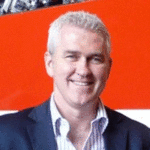Justin Hughes is Managing Director of Mission Excellence, a consultancy which accelerates organisational effectiveness. Justin previously spent 12 years as an RAF fighter pilot and served for 3 years on the Red Arrows. He is a renowned speaker on performance and risk and the author of The Business of Excellence, published by Bloomsbury. He can be found on Twitter at @JustinMissionEx.
Millenials Share Our DNA
In a surprise finding, it recently emerged that traces of early ‘millennials’ were found in Croydon and Newcastle, indicating that they may have originated on earth, not Mars as previously thought.
In fact, it seems that this group, defined approximately by marketers as having been born in the 80s and 90s, display many traits which had previously only been associated with humans of earlier generations not least their desire for fulfilling lives, including work. Maslow’s hierarchy of needs (1954!) refers.
Excuse the tongue-in-cheek, but I want to stress-test the thinking behind the hype. The expectations and social norms of every generation tend to evolve from the previous, and in recent years, the ‘information age’ has probably accelerated that evolution (a lot!). However, to read some coverage, one might conclude that the generation which grew up with the internet pose a similar engagement challenge to the creature that emerged from John Hurt’s stomach in Aliens (1979).
For those who have succumbed to the culture of instant gratification, the iconic scene can be viewed in isolation on YouTube.
Maybe millenials are just lucky enough to be around for the change, rather than being the agents of change?
The Youth of Today
In thinking about this issue, I am reminded of two experiences from client work.
Some 10 years ago when millenials were still known as young people, we were engaged by a client, a well-known corporate brand, to do some work with one of their own clients – an individual hair salon. This was not an obvious fit for our offering and approach, but our corporate client was keen and so we did it.
The salon owner spent a lot of time bemoaning the ‘youth of today’ and how they were impossible as staff, not least due to lack of commitment and low personal standards.
The Leaders of Tomorrow
Later the same week, I presented at an apprentice awards dinner for Airbus at the wing manufacture plant in Cheshire. The Managing Director was a highly credible and fascinating individual who had joined the company as a 16-year-old apprentice. He explained to me how he heard a lot of stories about the ‘youth of today’.
However, at Airbus, he was still taking young ‘kids’ from the same council estate that he had grown up on and giving them the opportunity to join the current apprentice programme. This required long-term commitment and compliance with a set of programme principles and rules. However, in return the scheme generated a sense of purpose, opportunity, and in the MD’s words, ‘turned out world-class engineers’.
Another company undaunted by the hype is Next Jump. They are below the radar to most but with a reputed $2b turnover, it may be one of the more successful companies you have never heard of. And possibly one of the more interesting.
Huge emphasis is placed on cultural fit and personal development, and significant effort is deployed in screening out ‘job hoppers’. With a ‘no firing’ policy, Next Jump is looking for those prepared to commit to a personal and professional journey.
And it turns out that, contrary to just about everything I read, that target group does have a population density on earth greater than tyrannosaurus rex.
The best companies have always understood that purpose, empowerment, personal development and fun were key to a motivated, engaged and effective workforce.
Build the Organisation YOU Want to Work For
My opinion is that, while management and organisational thinking moves on, the best companies have always understood that purpose, empowerment, personal development and fun were key to a motivated, engaged and effective workforce. However, those companies were the exception.
With the internet age has come a democratisation of information and a reduction in the power gradient between state and population, retailer and consumer, and organisation and employee. The massive changes in transparency, the ability to share information, challenge, hold to account and switch allegiances have changed the dynamics of those relationships significantly.
Maybe millenials are just lucky enough to be around for the change, rather than being the agents of change? It probably doesn’t matter which came first, the chicken or the egg, the millenial or the internet. But things have clearly changed.
So, what’s the solution? Wrap ourselves up in management-speak in order to cater to a marketing-led demographic? Or simply accept that the internet has been a driver of huge change and build the organisations that people of all ages have actually always wanted to work for?
Like most HR issues, this is ultimately a strategic and/or leadership issue. But HR certainly could have a pivotal role to play. We might need to stay off the marketing Kool-Aid though…






